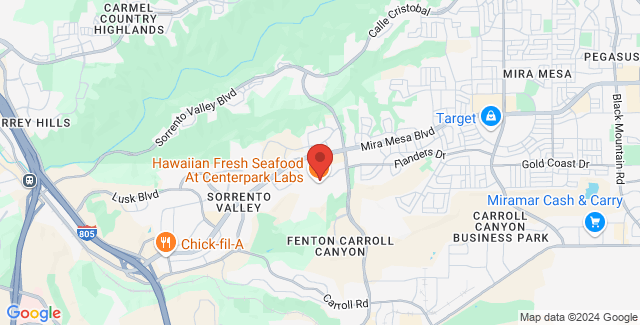Resources for Mesothelioma Victims
If you have been diagnosed with mesothelioma, one of the most important things for you to know is that you are not alone. There are people and organizations out there that care about you and can help you cope with your disease. It is common for people who are diagnosed with cancer to feel isolated, even from their own families. While there will certainly be times when you simply want to be left alone, reaching out for a helping hand in your time of greatest need can make a world of difference in how you cope with mesothelioma.

Mesothelioma is a rare and, unfortunately, incurable disease. A mesothelioma diagnosis does not, however, have to rob you of your quality of life. The following resources for mesothelioma victims can help you remain socially engaged and medically informed.
Medical Mesothelioma Resources
If you have been diagnosed with mesothelioma, you have probably already begun the process of putting together a network of medical specialists and other healthcare professionals who can provide you with the care and treatment you need. If, however, you have only recently been diagnosed with the disease, you may have some questions about the medical resources available to you. After all, your quality of life depends largely on the quality of medical team you assemble.
Aside from providing legal assistance, a qualified mesothelioma attorney can also help you to secure the medical care you need. Please read through this page and then contact an experienced, compassionate mesothelioma attorney for further information, guidance, and support.
Your Healthcare Team
There are many healthcare professionals who can provide you with the latest mesothelioma treatments, medications, and information. These include:
Oncologists
Oncologists are physicians who specialize in diagnosing and treating cancer. Depending on the course of therapy that is best suited to your case, your oncology team may include a chemotherapist, a radiologist, a surgeon, or any combination of the three. Your oncology team will create a mesothelioma treatment plan that will help you to manage your pain, control your symptoms, and generally lead as healthful a life as you can.
Nurses
Over the course of your treatment, you will probably communicate more often with your nurses than any other member of your healthcare team. Your nurses will play a vital role in administering and overseeing your treatments, monitoring your health, and keeping your spirits high.
Pharmacists
As part of your drug therapy, you will be interacting often with pharmacists. Having a good rapport with a pharmacist is helpful for many reasons; for one, you will probably feel more comfortable asking any questions you might have about your prescriptions.
Nutritionists
If it hasn’t already, your appetite will almost certainly change as a result of your mesothelioma or your various therapies. A nutritional expert can help you to plan healthy meals and find alternative sources of nutrition if you are unable to eat or digest your food.
Social Workers
Social workers can help to coordinate your medical and home care, understand your insurance policy, and attend to financial matters.
Cancer and Mesothelioma Research Organizations
There are a number of highly respected research organizations that can provide you with information about your disease, treatment and support options, and how to cope with cancer. These include:
The Mesothelioma Applied Research Foundation (MARF)
MARF is a non-profit organization comprised of mesothelioma patients and their families, healthcare professionals, advocates, and researchers, all united in their dedication to finding a cure to the disease. The organization provides education and support to patients and their families, funds mesothelioma research, and raises public awareness of the disease.
Other prominent cancer research organizations include the American Cancer Society, the National Cancer Institute, and the American Institute for Cancer Research.
Counseling and Psychological Support for Mesothelioma Victims
There are psychologists who are trained specifically to counsel cancer victims and their families, providing emotional support and helping them to find ways to cope with mesothelioma. Because mesothelioma is such a rare form of cancer, finding a local support group devoted exclusively to the disease may be an impossible task; however, a cancer support group will allow you to interact with others who have been diagnoses with some form of cancer. Sharing experiences and finding common ground among those who can understand what you are going through can be invaluable to your emotional and psychological well being.
If you have a religious affiliation, you may also find a valuable source of support in the form of your priest, rabbi, pastor, or other figure of religious authority.
Learn more about the counseling and psychological support options available to mesothelioma victims and their families.
Family and Friends
You have almost certainly found yourself in situations where people informed you of something unfortunate or tragic that happened to them, and you didn’t know quite how to respond. There is a good chance that your loved ones are experiencing a similar dilemma right now. They probably want to give you the support you want and need, but aren’t entirely sure how to go about doing so. While talking about your condition may be difficult both for you and your loved ones, it is important that you let them know what they can do to help you cope with your mesothelioma.
Don’t be hesitant in approaching your loved ones for help. Most, you will find, are eager to assist you in any way they can, but some may be fearful of offending or annoying you. Whether you need someone to help clean your house or simply keep you company, don’t be shy about letting the people who want to be there for you do so.
Resources for Family Members
It may be difficult sometimes for you to remember that, as a mesothelioma victim, you are not suffering alone. Your family is facing its own set of struggles related to your disease. Spouses, children, siblings, and even parents are among those whose lives can be turned upside-down by a mesothelioma diagnosis.
Many of the same resources that are available to mesothelioma victims are also available to their families. Indeed, having a family member present at your medical appointments could be beneficial to you both. Likewise, involving your family in meetings with a psychologist or support group can help to strengthen relationships that might otherwise be strained during such a difficult time.
Mesothelioma, like all forms of cancer, is a loathsome disease. With a single diagnosis, lives are thrown into chaos and confusion. If you have mesothelioma, you probably experience an enormous range of emotions, from anger to sadness, on a daily basis. After all, no one ever expects to be diagnosed with cancer, least of all one as rare as mesothelioma. Cancer may be many things, but fair it is most certainly not.
The emotional and psychological turmoil created by a mesothelioma diagnosis can be overwhelming, for victims and their families alike. You do not, however, have to face your disease alone. There are people who can provide you with the compassionate, empathetic support you need. Some are trained professionals; others are people who are going through the same challenges you now face.
At ImpactLaw.com, our goal is to provide a bridge between you and the resources you need to cope with your disease. For legal help, we urge you to contact a mesothelioma attorney today. For counseling and psychological support, we encourage you to consider the following resources:
Psychologists/Cancer Psychologists
During this tumultuous period of your life, a professional psychologist can give you a safe, confidential environment in which to express your frustrations, fears, and anxieties. He or she can help you give voice to your emotions and explore the issues underlying them. The purpose of a psychologist is neither to judge nor to diagnose serious mental disorders, but rather to provide guidance as you navigate the complex, sometimes distressing emotions and thoughts with which you have suddenly found yourself confronted.
Many people are surprised to learn that there is a branch of psychology devoted entirely to helping those diagnosed with cancer. A cancer psychologist applies the same principles that any other clinical psychologist would; however, he or she will have special training and experience in helping cancer sufferers cope with their disease.
Psychologists should not be confused with psychiatrists, who diagnose and treat more severe mental disorders and can prescribe medications. While a cancer diagnosis will generally produce feelings of deep sadness and depression, the vast majority of cancer patients are not driven to mental illness.
Cancer Support Groups
Because mesothelioma is a relatively rare form of cancer, local mesothelioma support groups are extremely uncommon. However, the Mesothelioma Applied Research Foundation (www.curemeso.org) does offer monthly telephone support groups.
Wherever you live, however, there are almost certainly general cancer support groups within reasonable driving distance. Even if you are the only person in the group to have been diagnosed with mesothelioma, you will have the opportunity to speak with people who are going through similar emotional, psychological, and physical hardships. You may have to try out a few different support groups to find the one best suited to you; however, once you find a group you feel comfortable with, you will likely find the support you receive an invaluable part of your recovery. You may even make some of the best friends you have ever had at a time when you need them the most.
Spiritual and Religious Support
Some people who are diagnosed with cancer are more likely to turn to religion for support; some find themselves questioning their spiritual beliefs. Whatever your religious beliefs, you may find comfort in turning to a spiritual leader within your community, such as a priest, a pastor, a rabbi, a monk, a nun, or an Imam. If you are not inclined toward religion, you may still find some psychological and philosophical benefit in speaking to a spiritual authority.
Contact a Mesothelioma Attorney for Legal Support
A lawyer who is experienced in handling mesothelioma lawsuits will be able to guide you through the often confusing legal process, helping you to obtain the compensation to which you are entitled so that you can focus on your psychological and emotional health. Contact a mesothelioma attorney today for further information on your legal rights and options.
Related to Mesothelioma Resources




